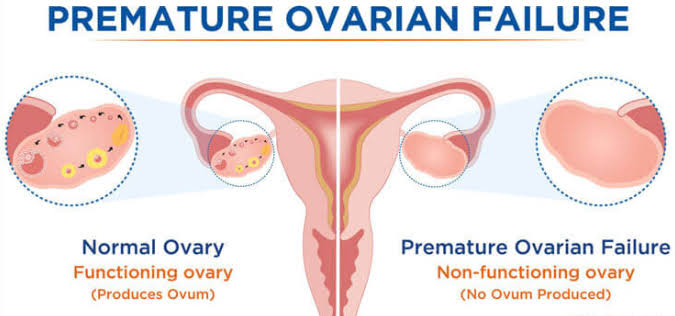Premature Ovarian Failure is on Rising in Women Of 25 to 30 years, explains Doctors

Pune, 23rd May 2022: There is a spike in the number of women in the age group 25-30 years, who are suffering from Premature ovarian insufficiency (POI) or premature ovarian failure (POF), a common cause of infertility in women below 40. There is no treatment to help one restore the normal functioning of ovaries. But hormonal replacement therapy can help to deal with symptoms such as hot flashes, bone loss, and vaginal dryness that arise due to ovarian failure, whereas infertility can be dealt with IVF or egg donor procedures.
Premature ovarian insufficiency (POI) or premature ovarian failure (POF) happens when ovaries are unable to function properly before a woman turns 40. “Women with POI cannot produce estrogen and progesterone hormones or release eggs and this can cause infertility. The red flags of it ate irregular or absence of menses, inability to become pregnant, hot flashes, vaginal dryness, irritation, and night sweats. 7 to 8 out of 40 patients every week come with premature ovarian failure.” said Dr. Nisha Pansare, Fertility Consultant, Nova IVF Fertility, Pune.
When a woman’s ovaries stop working before 40, she will experience premature ovarian insufficiency (POI). Genetic disorders like fragile X syndrome, taking cancer treatment like chemotherapy or radiation therapy, viral infections, and autoimmune disease are the causes behind this condition. Age, family history, and previous ovarian surgery are some of the risk factors linked to this condition. We have seen around 3-4 cases and the age group would be around 25 to 30 years. We wouldn’t say the numbers have gone, but surely it can be another issue amongst women, due to different lifestyle conditions,” said Dr. Preethika Shetty, Consultant Obstetrician & Gynaecologist, Motherhood Hospitals, Kharadi
Dr. Preethika added, “Woman’s history and certain blood hormone tests (follicle-stimulating hormone [FSH], estrogen, and antimüllerian [AMH] levels) are taken into consideration to diagnose this condition. Chromosomal analysis and Fragile X syndrome mutation (FMR1) should be checked to check for genetic causes of this condition.”
“POI raises the risk of infertility in women. The low levels of hormone estrogen lead to depression, stress, heart problems, and anxiety. Visit an expert if you have a missed period, thyroid problem, family history, or are undergoing cancer treatment. Hormone replacement therapy (HRT) consisting of estrogen and progesterone is used to treat menopausal symptoms. Those women who want to get pregnant and are unable to conceive due to infertility can go for donor eggs or IVF treatment. In the longer term, the loss of ovarian hormones, mainly estrogens invites osteoporosis. So, eat a well-balanced diet, take calcium and vitamin supplements and exercise daily to stay healthy,” concluded Dr Nisha








